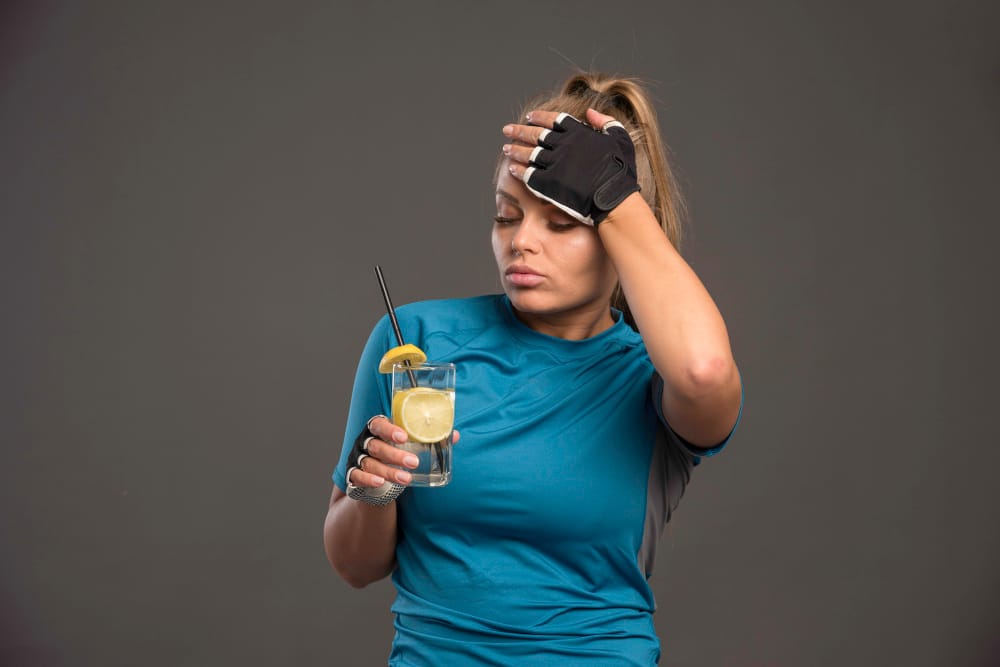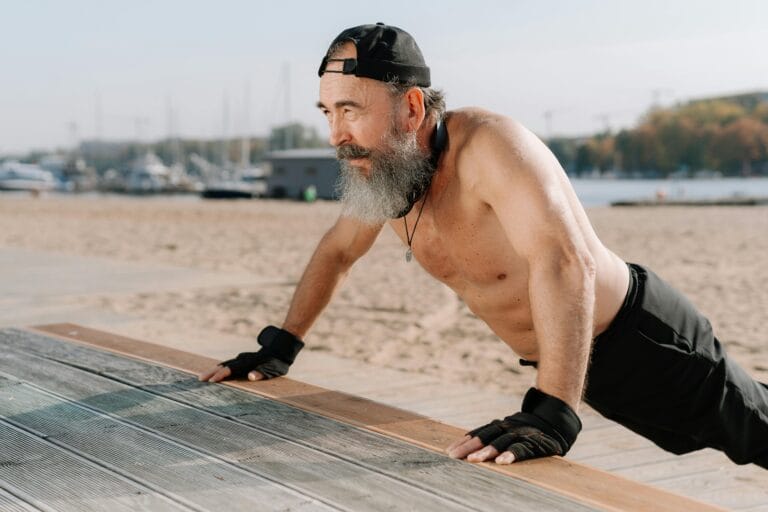FREE SHIPPING OVER $50
Is Alcohol Killing Your Gains? What Every Lifter Needs to Know

The scene is a familiar one for a dedicated lifter. You’ve had a brutal week of workouts. You hit new personal bests on the squat, your arms are pumped, and you’re feeling on top of the world. Friday night rolls around, and you decide to celebrate with friends. A few drinks turn into a few more, and the next thing you know, it’s Sunday morning and you’re wondering how a fun night out will affect your progress. You ask yourself the question every lifter has asked: “Is alcohol killing my gains?”
The answer, I’ve learned, is not as simple as a yes or a no. The science is clear, and it confirms what your gut has probably been telling you all along: alcohol can, in fact, sabotage your fitness goals. It’s not about a single drink; it’s about a series of complex biological reactions that actively work against your body’s ability to build muscle and recover. But understanding the “how” and “why” is what makes all the difference. This is what every lifter needs to know to make an informed choice and still achieve their goals.
How Alcohol Impacts Your Muscle Growth
When you lift weights, you’re creating micro-tears in your muscle fibers. Your body then repairs these tears, making the muscle stronger and bigger in the process. This is the fundamental principle of muscle growth. Alcohol, however, interferes with this process in a number of devastating ways.
- It Destroys Muscle Protein Synthesis (MPS): The single most important process for muscle growth is muscle protein synthesis. This is where your body takes protein and uses it to repair and rebuild muscle tissue. Studies have shown that consuming alcohol after a workout can suppress MPS by as much as 37%. You might be doing all the right things in the gym, but if you’re not allowing your body to repair itself, you’re missing out on the biggest part of the process.
- It Wrecks Your Hormones: Your hormones are the silent conductors of your body. Two of the most important for a lifter are testosterone and cortisol. Testosterone is an anabolic (muscle-building) hormone. Cortisol is a catabolic (muscle-breaking) hormone. When you drink alcohol, your testosterone levels drop while your cortisol levels rise. This creates a hormonal environment that is actively hostile to muscle growth, turning your body from a muscle-building machine into a muscle-wasting one.
- It Steals Your Sleep: You don’t build muscle in the gym; you build it when you rest. The most important time for recovery is when you sleep, particularly during deep sleep cycles, where your body releases the most growth hormone. While alcohol may make you feel sleepy, it actually disrupts these crucial cycles, leading to fragmented, lower-quality sleep that severely hinders your recovery and energy for your next workout.
- It Promotes Fat Storage: Your body views alcohol as a toxin and prioritizes metabolizing it over everything else. When you drink, your body’s ability to burn fat comes to a screeching halt. The calories from the alcohol and the food you might eat with it are much more likely to be stored as fat. This can lead to a softer physique, hiding the muscle you’ve worked so hard to build.
- It Causes Dehydration and Nutrient Depletion: Alcohol is a diuretic, meaning it makes you urinate more, leading to dehydration. Being even slightly dehydrated can negatively impact your workout performance and recovery. In addition, alcohol can interfere with the absorption of key nutrients like B vitamins, which are essential for energy production.
The Verdict: So, Is a Drink Ever Okay?
After reading all of that, you might be thinking you need to become a teetotaler to reach your fitness goals. That’s not necessarily true. The key, as with most things in fitness, is moderation and timing. The scientific research on alcohol and gains is dose-dependent. A single drink here and there is unlikely to have a significant, long-term impact on your progress, especially if you are a larger individual. The real damage is done by frequent or heavy drinking, which is what triggers the cascade of negative effects we’ve just discussed.
The takeaway is this: alcohol is a potential saboteur, not an instant gain-killer. The more you drink, the more you are actively working against your body’s ability to build muscle and burn fat.
The Lifter’s Guide: How to Balance Alcohol and Your Fitness Goals
If you want to enjoy a social life without completely sacrificing your hard work, here are a few simple rules that can help.
- Prioritize Your Goal: Be honest with yourself about your fitness goals. If your goal is to be a competitive lifter, alcohol will be a significant roadblock. If your goal is general health and well-being, a drink now and then is likely fine.
- The 1-2 Drink Rule: Keep it to one or two drinks. This level of consumption is less likely to have a significant impact on your hormones and recovery.
- Timing Is Everything: Do not drink immediately after a workout. This is when your body is primed for recovery, and introducing alcohol at this point is the worst thing you can do. Wait at least a few hours and make sure you’ve consumed a solid meal with protein and carbs first.
- Hydrate, Hydrate, Hydrate: For every alcoholic beverage you consume, drink a glass of water. This will help combat the dehydrating effects of alcohol and keep your body in a better state for recovery.
- Don’t Drink and Diet: If you are trying to lose weight, alcohol is a particularly bad choice. It’s filled with empty calories that can quickly add up, and it stops your body from burning fat. It’s one of the first things you should cut if you’re trying to get lean.
The Deeper Consequences of Excessive Alcohol Consumption
Beyond the immediate impact on your gains, heavy alcohol consumption can have serious long-term consequences. Liver health is compromised, your metabolism can slow down, and your overall health is at risk. A lifter’s mentality should be focused on building a stronger, healthier body, and heavy drinking works directly against that.
Conclusion
You’ve worked too hard to let your weekend plans sabotage your progress. The truth is, alcohol is not a passive liquid; it is a powerful drug that has a direct, detrimental effect on your muscle growth and recovery. By understanding the science behind how it works, you can make smarter, more intentional choices. You can still enjoy your life and celebrate with friends without completely derailing your fitness journey. The secret to success in fitness is consistency and commitment. By being mindful of your choices, you can achieve your fitness goals and still live a balanced, enjoyable life.
Related Articles
- Feeling Tired or Tense? These 10 Magnesium-Packed Drinks Calm Your Mind and Build Muscle Fast
- He’s 63, Ripped, and Defying Aging. What He Told Me About Muscle Blew My Mind—You Need to Hear This
- Squats Hurting Your Knees? These 4 Fixes Changed Everything for Me
- Sore After Workouts? These 10 Cool-Down Exercises Ease Pain and Boost Flexibility Fast
- Over 60 and Fitter Than Most 30-Year-Olds—This Couple’s At-Home Routine Is Shocking Trainers
- Beginner to Fit in 30 Days—No Gym, No Excuses, Just Results
- 30 Days. 3,000 Biceps Curls. The Results Were Not What I Expected







